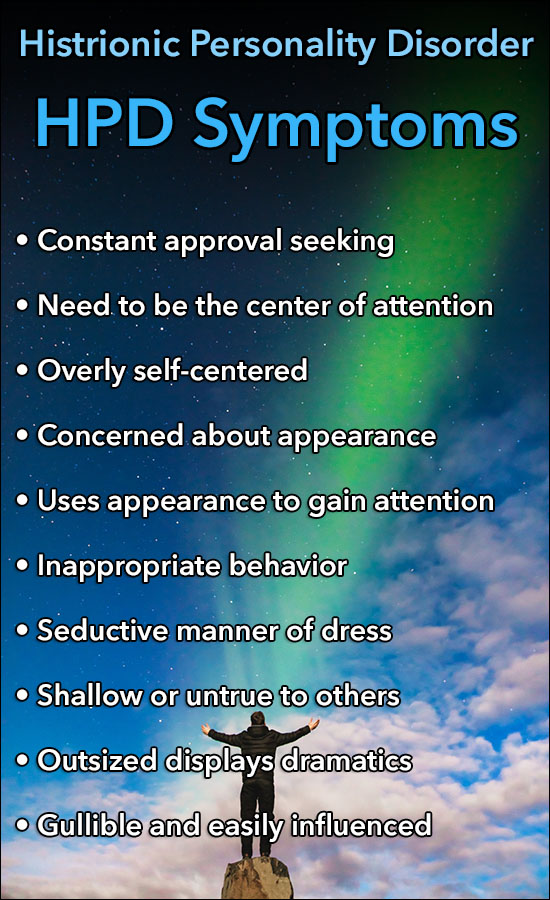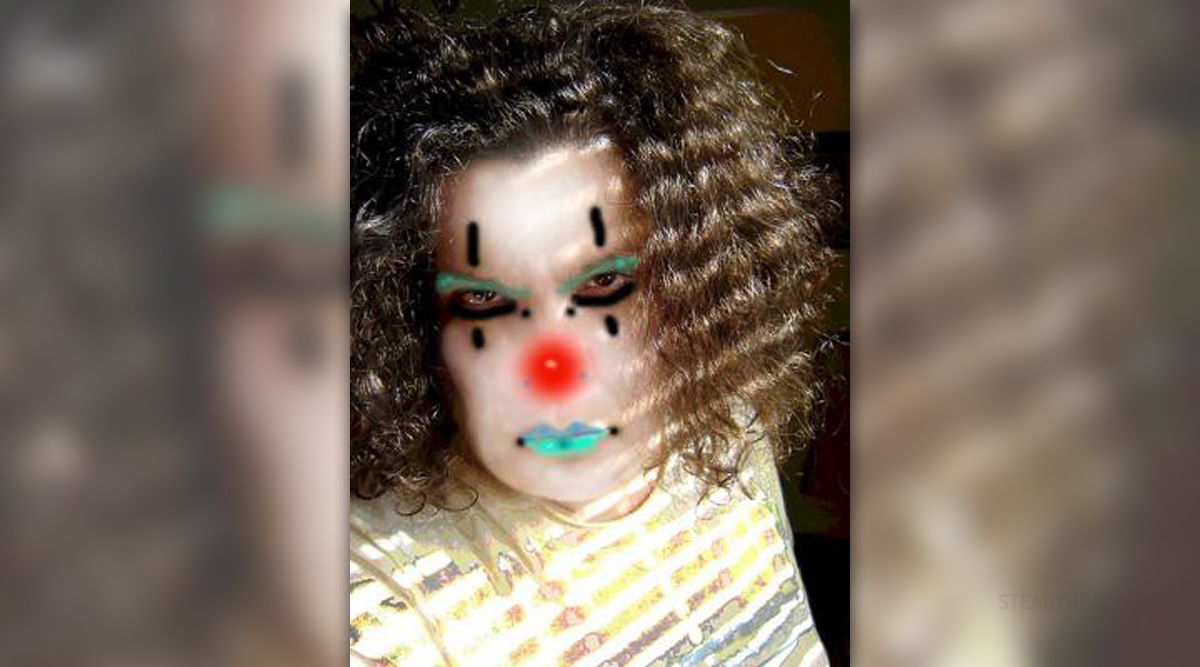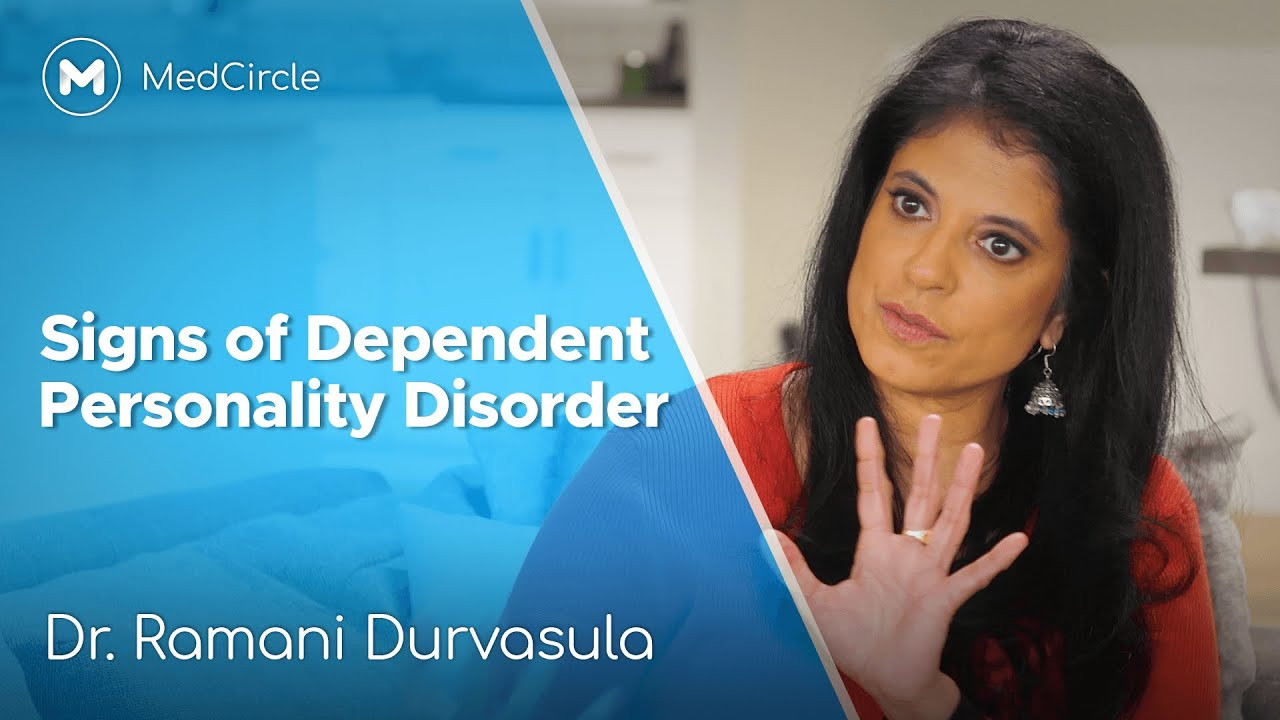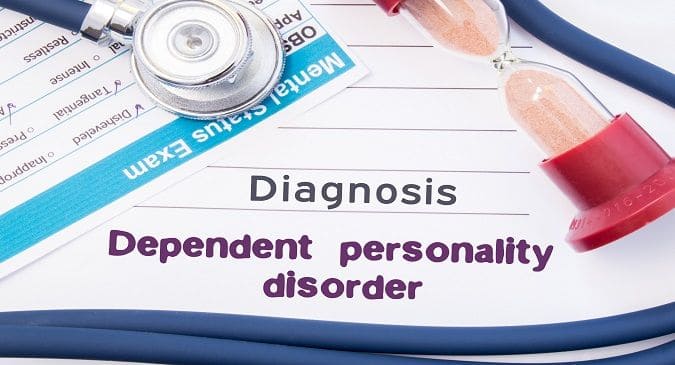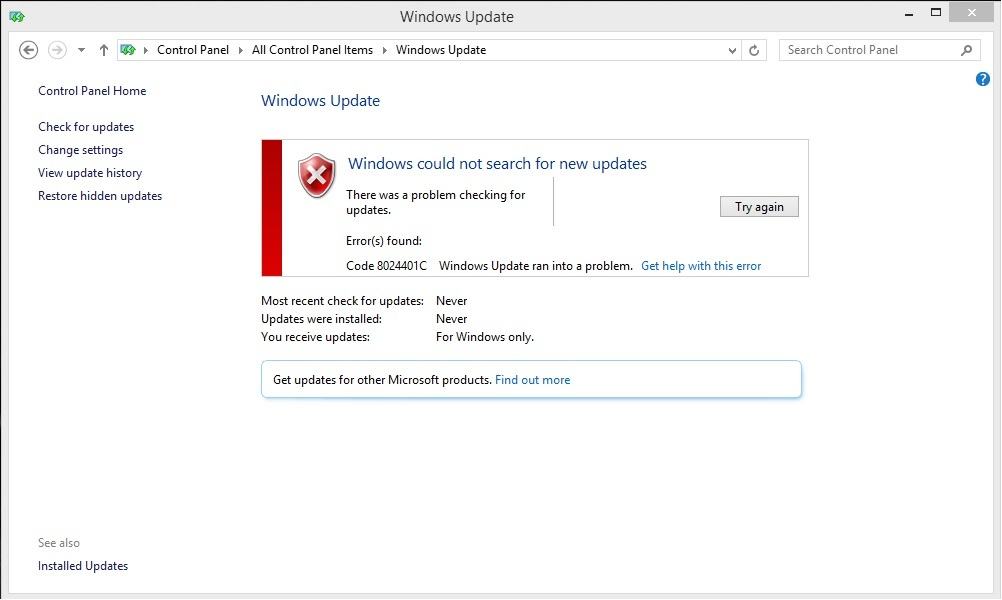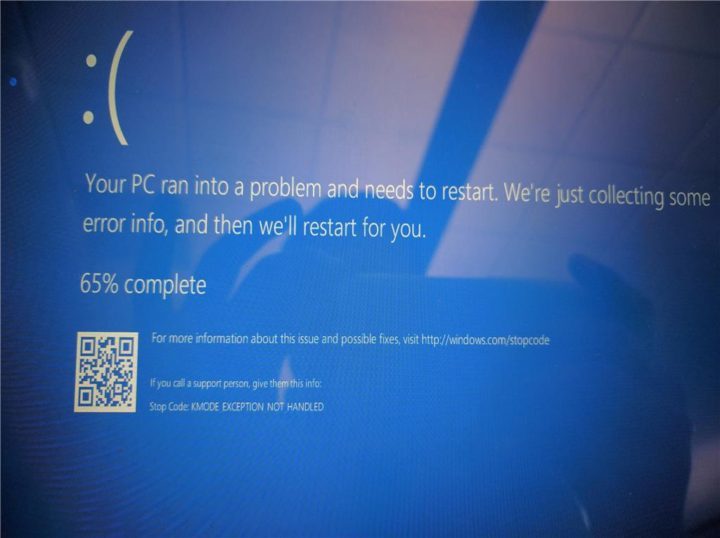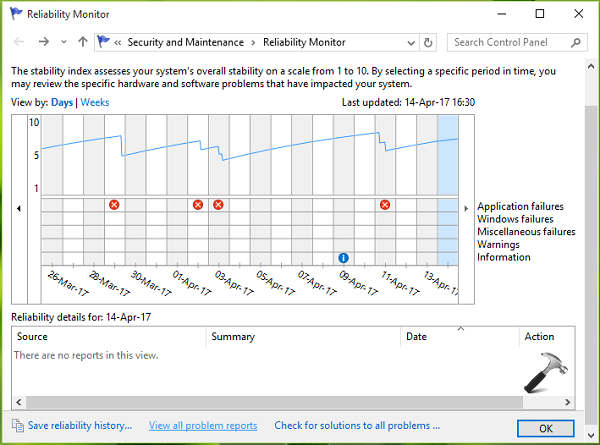Manifested as excessive and consistently recurrent emotional distress on account of past psychological traumas. The distress did not present with daytime flashbacks or nightmares, feelings or symptoms of significant anxiety, nor panic. It is interesting to note that despite management with medications for anti-depression treatment, the patient remained cyclically refractive, regarding her affective mood.
On two occasions, when the patient initially agreed on a discharge date, on the morning of discharge, she stated, "I'm not ready. Cognitive behavioral therapy and supportive psychotherapy services were referred to follow up as an outpatient telehealth treatment plan for the patient's mental illness. There are ten types of personality disorders, of which dependent personality disorder, DPD, is among the most commonly diagnosed.
DPD occurs in men and women equally and usually develops in young adulthood. DPD involves a pervasive need to be taken care of that causes feelings of helplessness and submissiveness. People with DPD have an excessive fear of abandonment and difficulty making everyday decisions.
Their reliance on others to fulfill their emotional and physical needs frequently leads to them being involved in physically and emotionally abusive relationships. Mental health experts describe personality as characteristic patterns of thinking, feeling, and behaving that make us unique individuals. Personality characteristics tend to remain consistent over time.
A personality disorder affects how a person thinks or acts, resulting in behavior that deviates from cultural norms and impairs healthy functioning. Individuals with personality disorders experience severe dysfunction in most areas of life, mainly with interpersonal relationships. Rose Hill Center is a top-rated mental health treatment facility offering various services, including personality disorder treatment. Though people with DPD fear being alone, their behaviors often sabotage relationships. While the end of a relationship devastates them, they quickly jump into a new one.
Some treatment experts may confuse DPD with borderline personality disorder , as they share many common symptoms. If you think you or a loved one has DPD, reach out to your doctor. Following an accurate diagnosis, dependent personality disorder treatment can help you manage symptoms and learn how to develop healthy relationships. People tend to seek interaction, connections, attachments, and relationships with other people. In fact, mental health is partly defined with regard to the strong emotional attachments to, and flexible interdependence on, close relationships we maintain with one another. But when interdependence becomes unbalanced to the degree that it is one-sided, it can become problematic, particularly if dependent personality disorder is involved.
DPD can have a major impact on the ability to function in daily life. For instance, society holds expectations regarding individual decisiveness, independence, and self-reliance that are dependent on age and situation, such as physical or medical issues. A person who does not meet those expectations could face difficulty functioning in school, work, and other interpersonal situations.
The goal of therapy is to help the person with DPD become more active and independent, and to learn to form healthy relationships. Short-term therapy with specific goals is preferred when the focus is on managing behaviors that interfere with functioning. The etiology for DPD is supported by the notion that family upbringing, social-observed learning, and childhood trauma have been implicated as a causative role in dependent personality disorder. The case study patient's history aligns with childhood trauma as a causative role outlined in reported literature . It makes logical sense that children who were separated from their caregivers in some way may become adults with developed attachment or detachment issues connected to mental illness.
A child or an adult's negative attributes are evidenced by viewing one's self as dysfunctional or inadequate and acquiring insecure attachment relationships with others . Usually, dependent personality disorder is treated with a combination of talk therapy and medication, if necessary. Therapy focuses on adjusting negative disruptive behaviors and patterns of thinking. The goal is to increase independence through improving the ability to make everyday decisions, and to initiate and develop healthy satisfying relationships. Treatment for DPD can be effective and improve function in daily life. It is not surprising that cognitive behavioral therapy is a treatment method for DPD of various subtypes.
Cognitive therapy enables a patient diagnosed with a personality disorder to understand his/her history, including childhood traumas. The self-sufficient capacity to fill themselves up, without a need to depend on others or have feelings of emptiness resolved by helping others, indicates successful treatment . Developed a coping mechanism that caused her to be dependent on the desire to care for others in order to boost her self-worth or mood, and her desire to continue living. While dependent personality disorder can be an overwhelming and disruptive condition, it is also a treatable one. Often, a residential treatment program offers the best environment to engage in these therapies due to the intensity of care made possible by the residential milieu.
As a result, they can move toward greater confidence, assertiveness, and independence. Certain types of psychotherapy are effective for treating personality disorders. During psychotherapy, an individual can gain insight and knowledge about the disorder and what is contributing to symptoms, and can talk about thoughts, feelings and behaviors.
Psychotherapy can help a person understand the effects of their behavior on others and learn to manage or cope with symptoms and to reduce behaviors causing problems with functioning and relationships. The type of treatment will depend on the specific personality disorder, how severe it is, and the individual's circumstances. Dependent personality disorder can deeply disrupt a person's ability to function in a healthy way.
As a result, the disorder often creates overwhelming distress for everyone involved. To date, the altruistic type of dependent personality disorder has not been previously found on literature search engines as a topic extensively reviewed. It is recommended that more studies are done on personality disorders to utilize them as identifiable markers or primary diagnosis indicators of mental illness. A skilled clinician's capacity to efficiently conduct a psychiatry interview with personality disorders in mind may increase the likelihood of achieving a prompt clinical diagnosis. Further advancement of dependent personality disorder subtypes and associative conditions such as adjustment disorder can spark a renaissance toward the advancement of clinical psychiatry. Common symptoms of dependent personality disorder include things like extreme sensitivity to criticism, fear of abandonment or separation, and a sense of helplessness when a relationship ends.
Everyone experiences some level of discomfort at the end of a relationship. For example, you might feel unable to make everyday decisions, and you may need constant support or approval from others. This is especially prevalent for those individuals who also experience high interpersonal stress and poor social support. Individuals with DPD spend a great deal of time and effort trying to please others. They also have a fear of separation and are hypersensitive to rejection. These disorders are long-lasting, inescapable patterns of thinking, reacting, perceiving, and relating, causing the person intense distress.
They also can impair a person's ability to function on a daily basis. As a mental health illness, it is one that is not all that common but does affect a percentage of the US population. People living with dependent personality disorder can be at risk for abuse or can be abusers themselves. Often, people with DPD only interact with the few people the rely on for support and care. And if one of those relationship ends, they immediately seek a new relationship to replace the one they lost, at times without discriminating when choosing the replacement.
People with DPD at risk for abuse may inadvisably enter in to new relationships and submit to the will of someone who would make unreasonable demands upon them. In these situations, it is possible that attempts to be excessively ingratiating could place a person with DPD in a position to tolerate emotional, verbal, physical, or sexual abuse. Compared to other mental illnesses, dependent personality disorder isn't very common. It is only diagnosed in 0.5 to 0.6 percent of the general population.
However, signs of this personality disorder can appear in virtually anyone. You may experience some symptoms of DPD throughout your life, even if you don't have this mental health condition. Drugs and alcohol might interfere with DPD treatment due to that therapy focuses on addressing the underlying mental health disorders, like anxiety and depression.
If a person with DPD is taking antidepressant or anti-anxiety medication, alcohol use can be risky because it is a depressant affecting the central nervous system. Prescription drugs usually act slower than illicit substances and could take several weeks before the person begins to feel the wanted relief. In this case, the individual may take more of the drug to experience the intended relief. Abuse of the drug then becomes a problem that needs to be addressed.
Psychotherapy is the main dependent personality disorder treatment. Psychotherapy helps you to understand your condition, reduce symptoms, and build skills for healthy independence and healthy relationship development. Psychotherapy is often a short-term treatment to avoid unintentionally developing dependence on a therapist. Medication is sometimes used as a last resort to relieve symptoms. However, when left untreated, DPD can develop into other medical and mental health conditions including depression, anxiety, avoidant personality disorder, and substance abuse.
People with dependent personality disorder should consider psychotherapy for treatment. This disorder often requires long-term therapy or treatment. People with co-occurring disorders of dependent personality disorder and substance use disorder will find that both disorders are treatable. These two mental health conditions are common with people with DPD. It is essential to not self-medicate with prescription opioids, alcohol, or other drugs, like marijuana.
Dependent personality disorder is one of the most commonly diagnosed mental health disorders. It is a condition in which people depend on others too much to meet their physical and emotional needs. While there is no known direct cause for DPD, it is thought that the disorder may be a result of a mix of environmental, genetics, temperamental, and developmental factors. Mood stabilizers can help deal with the more extreme symptoms of personality disorders, but they will not take effect immediately, and the patient will also likely require behavioral or cognitive therapy. Selective serotonin reuptake inhibitors and monoamine oxidase inhibitors are both used to treat depression.
Treatment helps people with DPD end their behavioral patterns and build healthier relationships. However, there is no quick cure for these heavily ingrained behaviors. But through residential dependent personality disorder treatment Holly Michigan offers, you can start enjoying a better life. Do you notice negative patterns in your relationships with others? Are you questioning your ability to maintain healthy relations without pushing people you love away? If you struggle in relationships, signs of dependent personality disorder symptoms point to a real need for counseling support.
If you have any signs or symptoms of a personality disorder, see your doctor or other primary care professional or a mental health professional. Untreated, personality disorders can cause significant problems in your life that may get worse without treatment. People with a history of neglect and an abusive upbringing are more susceptible to develop DPD, specifically those involved in long-term abusive relationships. Those with overprotective or authoritarian parents are also more at risk to develop DPD.
Having a family history of anxiety disorder can play a role in the development of DPD as a 2004 twin study found a 0.81 heritability for personality disorders collectively. As is the case with many personality disorders, people with DPD generally do not seek treatment for the disorder itself. Rather, they might seek treatment when a problem in their lives -- often resulting from thinking or behavior related to the disorder -- becomes overwhelming, and they are no longer able to cope.
People with DPD are prone to developing depression or anxiety, symptoms that might prompt the individual to seek help. Dependent personality disorder is one of the most frequently diagnosed personality disorders. First, your doctor will give you a physical exam to see if there is a medical reason for your symptoms.
If not, they will refer you to a mental health professional who will ask you several questions about how you feel and if you have any other mental health issues, such as anxiety or depression. Substance abuse and addiction often coexist with a personality disorder. BioMed Central published a study that showed that 46 percent of people with a substance use disorder suffer from at least one personality disorder; however, symptoms can overlap and can be hard to diagnose. Cluster B personality disorders are characterized by dramatic, overly emotional or unpredictable thinking or behavior. They include antisocial personality disorder, borderline personality disorder, histrionic personality disorder and narcissistic personality disorder.
If you suspect that you may have dependent personality disorder, you should consult a medical professional. By having an expert look at your unique experiences and symptoms, you can more confidently decide if you need mental health treatment. The emotional symptoms of personality disorders vary between disorders and express themselves to varying degrees with each person, according to the Mayo Clinic. For example, people with avoidant personality disorder have an extreme aversion of conflict, allowing others to take advantage of them. Other symptoms can include poor impulse control and a propensity for substance abuse. Personality disorders are caused by a mixture of genetic factors, such as a family history of disorders and upbringing.
People who have a dysfunctional home life in early childhood and adolescence can develop personality disorders in later life. For example, a lack of constructive criticism or excessive praise could foster narcissistic personality disorder. It takes knowledge of a person's background and family history to pinpoint what causes a personality disorder, and it is not an exact science.
Many people living with DPD seek support and approval because they feel as though they are inferior to others. They tend to belittle themselves and their abilities, and any criticism they receive is viewed as proof of their incompetence and inability to make decisions. Also, people with DPD often will agree to something they know is wrong or avoid showing anger when the anger is warranted, because they are afraid of losing the approval of others. People who suffer from dependent personality disorder have a pervasive and excessive need to be taken care of by another person. People in a relationship where dependent personality disorder is involved are also at risk for developing codependency, a situation where compulsive caretaking and dependency can become destructive.
It is not clear what causes DPD, but certain childhood experiences could make an individual more at risk for developing the disorder. Many people diagnosed with personality disorders have experience of trauma. These might include difficulties growing up, including childhood neglect or physical, emotional or sexual abuse. When a close relationship ends , individuals with dependent personality disorder may urgently seek another relationship to provide the care and support they need.





